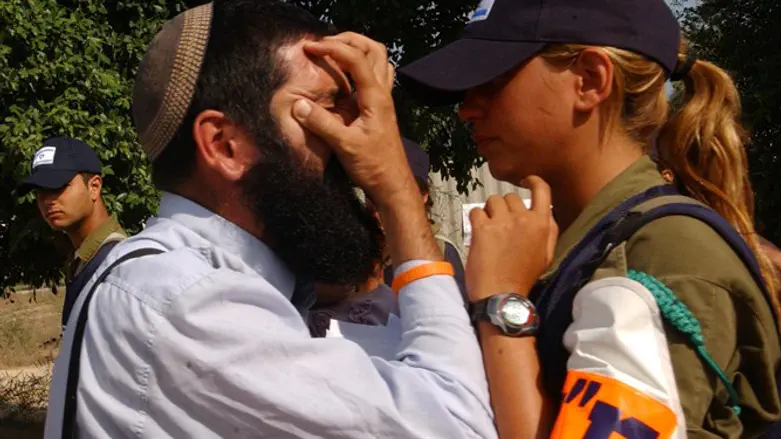
The son of late Prime Minister Ariel Sharon says that he has no regrets for his role in promoting the 2005 Gaza disengagement, which saw 9,000 Jews forced from their homes in Gaza's Gush Katif region.
As part of the 2005 disengagement from Gaza, Israel unilaterally withdrew from the Gaza Strip and parts of northern Samaria, demolishing 25 Israeli towns and removing Israel's security forces from that region.
The move was spearheaded by then-Prime Minister Ariel Sharon, and involved the eviction of thousands of Israelis from 21 towns in Gaza and 4 in Samaria.
In Gilad Sharon's 2011 biography of his father titled 'Sharon: The Life of a Leader', Gilad contended that he had convinced his father to uproot the thriving, decades-old communities.
In an interview with 101.5FM on Sunday, Gilad Sharon defended the move and stated that he has no regrets despite the numerous military operations and rocket fire following the disengagement. Sharon said that the disengagement "clearly saved lives" in the long run and prevented Israel from having to "bring out piles of bodies".
"There are many people who are angry, but at least they're alive," Sharon added. "Gaza is a death trap and I think it's good that we're not there."
Sharon stressed, however, that he opposed a similar withdrawal from Judea and Samaria. "It has nothing to do with what we have to do in Judea and Samaria, from where we can never leave, because besides this is the cradle of the birth of our people, it will endanger our security in a way which he unacceptable," said Sharon.
"What was true for Gaza, a small, isolated, perhaps the most crowded place in the world, is not true for Judea and Samaria."
Last year, Sharon announced that he was returning to politics and is attempting to earn a realistic spot on the Likud's Knesset list in the next primaries. Sharon has refused to apologize for his role in the disengagement, despite its unpopularity among Likud activists. In 2015, Sharon caused a minor ruckus when he alleged to Army Radio that the plan was "a brilliant success".
"No one, except for a few nuts, suggested that we remain there," contended Sharon.